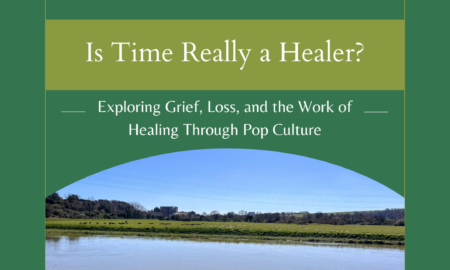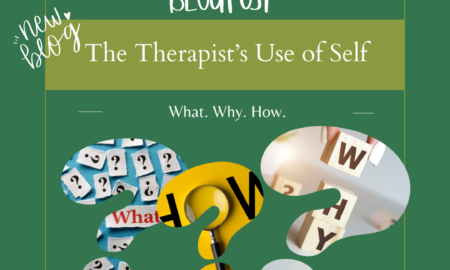PTSD
What is emotional and psychological trauma?
Generally experts have differing opinions on how psychological trauma is defined. The important thing to note is that it is an individual’s subjective experience that determines whether it is a trauma or not.
Trauma is unique to the individual. If an individual experiences something that results in overwhelming emotion that is difficult to grasp or fathom, psychological trauma can occur.
Who Can Be Affected by PTSD?
PTSD does not discriminate. Anyone can be affected by PTSD and there are many factors that may increase a person’s vulnerability to PTSD or to the severity of PTSD symptoms. Not all of them are within individual control, including;
- Repeated exposure to traumatic incidences
- Being physically hurt or injured
- Having a smaller or no support network (family and friends, professionals)
- Experiencing a trauma at the same time as already experiencing stress
Symptoms of PTSD
The most common symptoms of PTSD include;
- Re-experiencing/Reliving the Events of the traumatic event
- This may be in the form of flashbacks, seeing intrusive images or having nightmares. As well as seeing a traumatic event over you may also have the emotional and physical symptoms to accompany your visual and you may be fearful and agitated, sweating, feel pain, and more.
- Hypervigilance, i.e. feeling constantly on edge
- You may feel you cannot relax and are always on high alert mode, feeling anxious and have a heightened awareness of what is going on around you. This may affect your sleeping patterns and you may be easily startled.
- Avoidance
- Avoiding feelings, memories or people that may remind you of the trauma
- Isolating yourself to prevent unwanted memories
- Keeping busy and distracted to keep your mind away from what happened
- Not being able to express yourself or your feelings because you are feeling numb
Emotional symptoms of trauma can vary from person to person. They could include;
- Shock or denial
- Anxiety and fear
- Anger and irritability
- Guilt or shame
- Sadness or feeling at a loss
Physiological Symptoms
Physical symptoms of trauma can include;
- Muscle tension
- Sleep disturbances; insomnia, nightmares, fatigue
- Elevated heartrate
- Body aches and pains including un-diagnosable pains
Psychotherapy for PTSD
Psychotherapy for trauma works in a different way and focuses on a staged approach that is often longer term work. The staged approach focuses on establishing a solid working alliance with me as your therapist to allow for a space for safety and empowerment to be created. If you have coped for years following a trauma, longer-term therapy is needed to create a solid and trusting relationship. A safe environment with someone you trust is needed for you to feel able to make changes to their life. Short term therapy often doesn’t provide this opportunity, meaning that some people may feel they are “beyond help” or “untreatable” if they don’t get to a stage of really trusting their therapist.
Stages of self-regulation, processing trauma-related memories, resolution and integration are also important in trauma therapy.
If you are looking for a therapist to work on trauma-related issues it is important to find someone with the relevant experience and training.
I have had additional Trauma training and have experience of working with people suffering with PTSD, (C)PTSD (Complex Post-Traumatic Stress Disorder) and a range of other Trauma-Related Dissociative issues such as DID (Dissociative Identity Disorder).

Book a Consultation
Frequently Asked Questions
The terms ‘Psychotherapy’ and ‘Counselling’ are often used interchangeably and essentially they are both characterised by a form of “talking therapy”. You will see many practitioners will use both terms when referring to themselves.
Fundamentally both psychotherapy and counselling have the same goal of providing relief to someone with some sort of psychological symptom or obstacles although there are some subtle differences.
‘Counselling’ is often used to describe a shorter-term process than psychotherapy. A goal in counselling is to enable someone to make better use of resources they may already have in place. Counselling often focuses on a specific issue, life event or experience or on a particular symptom.
‘Psychotherapy’ is often a longer process of treatment and focuses on facilitating the exploration and development of new resources for a person. In psychotherapy you will have the chance to look deeper into the root of your issues. You will have the chance to explore patterns of behaviour, thinking and feeling in your life at a greater depth that allow you to focus more on your way of being in the world.
Psychotherapy training is also a more rigorous and academic process.
Someone who may be in training to be a Psychotherapist may refer to themselves as a Psychotherapeutic Counsellor until they have completed certification to be known as a Psychotherapist.
I hope that my website has given you an overview of who I am and how I work and if you are interested in finding out more I would recommend an initial consultation to meet each other to see if it feels right for you when we are in the room together. We will probably be able to establish quite early on if I am the right person for you.
Choosing a therapist is a very individual choice and I recommend you take the time to meet at least a couple people with a view to having some thought about who you may work best with. I believe that each relationship is individual and unique and it is a privilege for me to get to know people I see and to support them on their therapeutic journey. Relationship is central to building a therapeutic alliance and working together, so trust your instinct to make a decision and start your own journey.
I look forward to meeting you!
Following our initial assessment, if you would like to start sessions together we will agree a day and time for your sessions. I will send you a standard therapy agreement that outlines my commitment to you and it details much of what I would have discussed in the assessment session. This includes details of my professional commitments and of the administrative aspects of our therapeutic relationship. We will both have a signed copy of this agreement.
Payment is due each session and I accept cash or BACS transfers. Any missed sessions with less than 48 hours notice will be payable on the following session.
If you want to work longer term I am also happy to work on monthly payments.
Latest Blog Posts

Maternal Instincts Don’t Fit Into a Spreadsheet
When Something Just Doesn’t Feel Right There are moments in mothering - often small, subtle ones - when something rises up in me with a quiet but unmistakable clarity. A…

Is Time Really a Healer?
Pop Culture and Loss I recently finished the Netflix series One Day. (Spoiler alert—if you haven’t seen it yet, you might want to pause here and come back once you…

The Therapists Use of Self in Psychotherapy
Beyond the Blank Slate – Reconsidering neutrality in relational psychotherapy In the quiet, unfolding space of the therapy room, we are often taught to be the steady presence - the…

Finding Hope
Why Hope Matters on Difficult Days This morning the Happiful magazine newsletter landed in my inbox and the title of the newsletter was “It’s OK to look for hope”. It…

What is Mature Love?
Creating Meaningful Connections Mature love, what is it? I’m not talking about being 80 years old and holding hands on a walk through the park here. I am talking about…

What Do We Mean by 'The Self' in Psychotherapy?
Understanding the Concept of the Self The concept of "the self" is central to psychotherapy, yet it can feel elusive and abstract. As therapists, we often talk about self-awareness, self-development,…
Ready to Make a Change? Book an Initial Consultation Today
If you have any questions at all about therapy or would like to make an appointment, get in touch. I will usually be able to respond to you within 24 hours.
